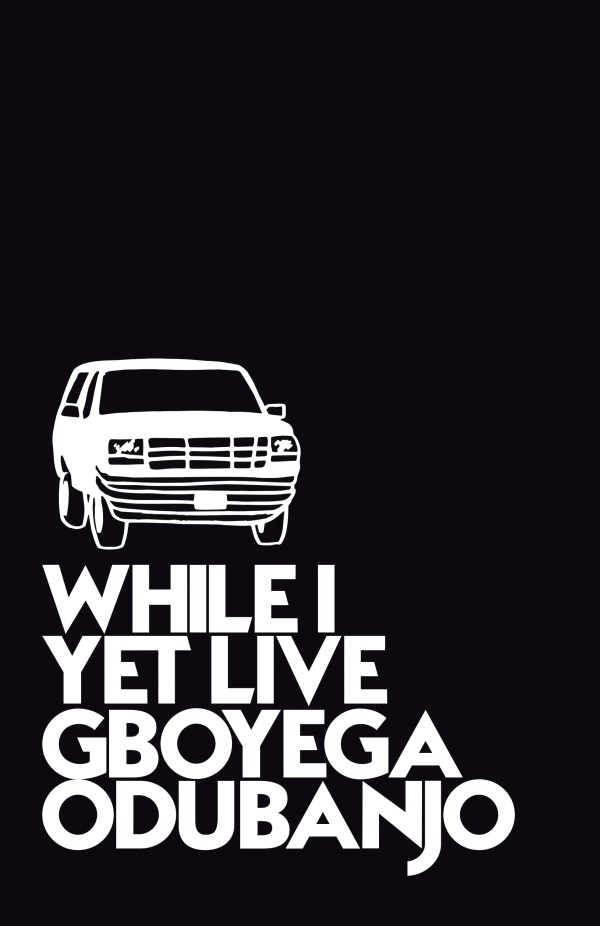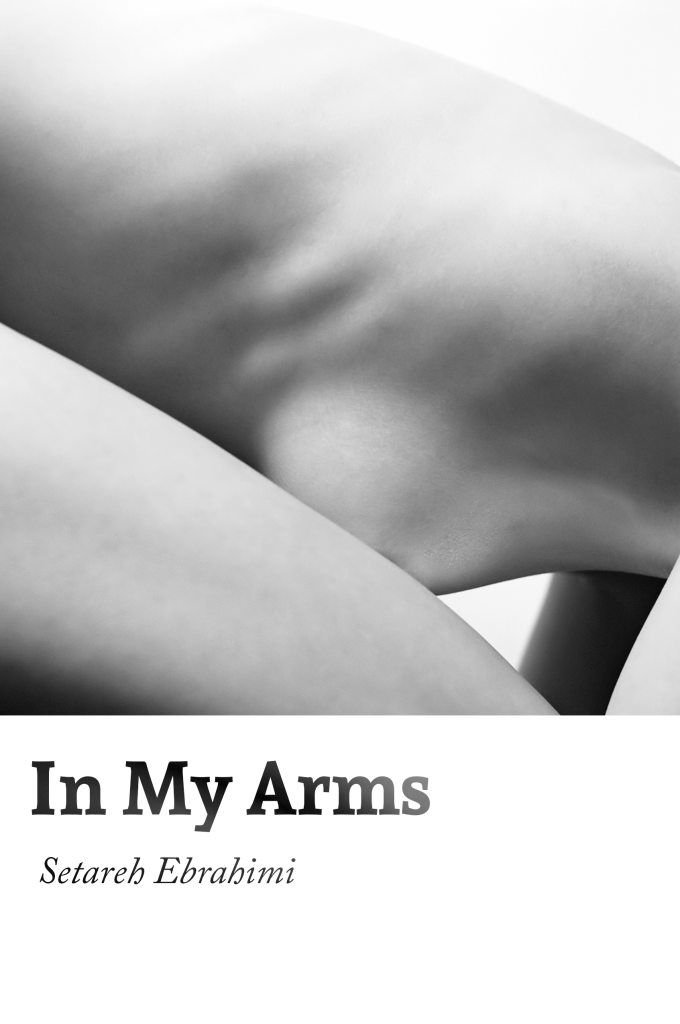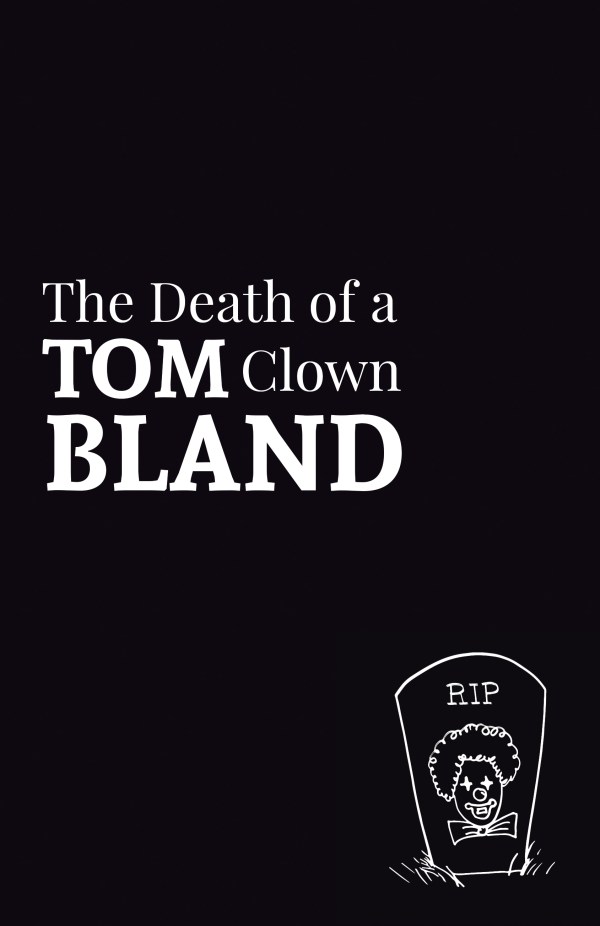Welcome to Pub Chats, our series of interviews about the nuts and bolts of publishing with some of the country’s most innovative indie presses. Joining us for a chat and a drink today is Amy Acre of Bad Betty Press.
Hello there! What are you drinking?
I like a bit of everything, but it’s 4pm on a Monday so a cuppa would be lovely. If you really want to, you can throw in a bit of rum.
How long has Bad Betty Press been running?
We started in July 2017, so a year and a half, and a bit.
What were some of the practical things you did to get started?
We didn’t really know how to start as a press, so our approach has been a mix of copying publishers we like, and making stuff up as we go along. We came up with a name, created a logo and a website and then put together our first book—Jake (Wild Hall)’s pamphlet, Solomon’s World. Our friend, the poet Joel Auterson, designed the cover for us. We signed up with Lightning Source for printing and distribution. We got some advice from my accountant, and a bank account. We started a budget spreadsheet. We had very little money—I think Jake and I each put in a couple of hundred for ten ISBNs, a url and a subscription to InDesign. We’ve kept our costs low by doing almost everything ourselves or getting favours from friends: I edit, typeset, do our web design and some of the covers, Jake does most of the events and social stuff, artist development, and reads a staggering number of submissions.
Does your personal background lend itself being an independent publisher?
In a slightly sideways way, yeah. I’m a poet but also a copywriter, so I’ve spent 15 years editing and working with designers, and have a good understanding of marketing and social media. Jake is very active on the live poetry scene, runs monthly night Boomerang which he’s taken to the PBS Free Fringe for the last few years and does a lot of promoting, including his own sell-out book tour. Both of us have run open mics and festival stages and performed a lot over the last ten years, so we knew a lot of poets when we started and people we wanted to work with.
Where does the name Bad Betty Press come from?
It’s a clue to the sort of writing we like, influenced by an attachment to the film Clueless. To quote our website: “We love writing that is beautiful (‘a Betty’ in 90s slang) and badass.”
Could you describe the sort of poetry you publish?
See above 🙂 More specifically, we like poetry that is challenging in some way, that feels fresh and exciting. We like the strange, raw and risk-taking. We tend to publish work by poets who are actively performing or otherwise making a space for themselves on the scene.
How are you different from other independent publishers?
I can’t speak for other publishers, but we have quite a strong ‘family’ feel, maybe because we’re a couple running the press, or because a lot of our authors are also close friends. We’re still a very young press, so this might change as we develop as a business, but I hope that the heart of it won’t change too much.
On average, how many books do you sell in a year?
It’s been a little over 1,000 in our first year, and naturally, we hope to build on this year on year.
What have been some of your biggest successes so far?
We’ve very proud of our mental health anthology, The Dizziness of Freedom, which came out last September. We were lucky enough to enlist 50 of our favourite poets to write in new ways about a subject that we think’s really important. Getting ACE funding for this was a huge help and meant we could pay not only the poets but also an excellent designer, Lynne Eve. The book’s been shortlisted for London’s BIG READ, which means it will get out to schools, universities and libraries, and we hope, be a resource to people when they’re struggling.
We’ve also been shortlisted for a couple of nice awards: the Michael Marks Publisher’s Award and Saboteur’s Most Innovative Publisher.
What’s the best thing you’ve found from the unsolicited pile?
The third pamphlet we put out, In My Arms by Setareh Ebrahimi, came through the slushpile. It was really lovely to receive a manuscript we loved from someone we didn’t know, and for that to become a relationship that we hope will continue as we both develop, as press and as poet. We’ve recently closed a submissions window, and there are a few manuscripts in there we’re a bit excited about, although obviously we can’t mention any names just yet.
How important is the physical book design for you?
Whenever possible, we aim to create books that look and feel beautiful, outside as well as in. But this is one part of publishing where having some cash makes a big difference. With our Bad Betty Shots mini-pamphlet series, we put aside a small bit of money to pay a wonderful illustrator—Helen Nicholson, and this enabled us to create really beautiful, small and strange, limited edition books that we really fell in love with. Likewise with The Dizziness of Freedom, Lynne Eve’s design gave the book exactly the iconic look that we wanted. I have a love of typography, and a bit of a Robert Rodriguez-ish do-it-yourself attitude, both of which I’ve indulged when we didn’t have money to pay someone, and although those covers are more minimalist, I hope that they still carry a certain aesthetic and tone that is essentially Bad Betty. Typesetting is something I think anyone can pick up if they enjoy it. You just have to have patience, an awareness of your genre’s conventions, and an understanding of the difference between how something looks on-screen vs printed and bound, which you pick up as you go. We’ve worked with two different printers: Lightning Source and People For Print. The former, a global distribution giant, the latter an independent, eco-friendly printers. We found both the same way: by looking at books we loved the look of—the printing quality, feel of the paper—and seeing who printed them.
Could you describe your editing process? And how long does it take start to finish?
Editing usually starts with a chat between me and the poet, going through initial and top-level thoughts, and then migrates to Google docs where it’s easy to share comments, suggest edits and try stuff out. I try to always keep the process as a conversation rather than giving imperatives, and by the end of it, usually we both have a cleare r idea of the intention behind the work. How long it takes really depends on the manuscript—some have come to us almost fully formed, others needed more work but were well worth it. It’s a lovely thing to see a book taking shape. Although I’m in charge of the final edits, Jake also works closely with some of our authors for an initial feedback phase, before passing stuff on to me.
What’s your submissions policy?
We have submissions windows, just because if we were open all year round, we’d be doing nothing but reading submissions and have no time to actually get books made. We alternate between accepting pamphlet / collection manuscripts and putting out calls for anthologies. With pamphlets and collections, we ask for an initial 10-page sample, sent to [email protected] Right now we’re closed, but will post new windows and guidelines here: https://badbettypress.com/subs/
What are some basic mistakes people make when submitting to you?
The worst is when people get the name of our press wrong, which does occasionally happen! But the most common mistakes are sending work that hasn’t been self-edited, relying on cliches, ignoring our guidelines and giving too much info in the cover email—either overtly bigging themselves up or trying to explain the manuscript instead of letting the work speak for itself.
Where do you look for new writers?
At poetry events and open mic nights, on social media, in magazines and anthologies. And we’re not shy of approaching our friends, or friends of friends, if we think they’re great and don’t yet have a publisher. There are loads of great programmes for talented young poets coming up on the scene, like Barbican Young Poets and the Roundhouse Collective, so it’s always good to check out who’s in their current line-up.
What advice would you give to poets today trying to get published?
If you stick at it and apply yourself to your craft, you’ll get there. With all the new indie presses popping up, publishing’s getting less elitist and more adventurous. Read lots. Go to events, listen to poets, see what’s out there, what’s new, what’s been done a million times. Write as you, not your favourite poet. Don’t go easy on yourself in editing. Think about how you want to evolve as an artist, what’s happening now in poetry and where you sit in the scene.
How do you pay your writers? How does remuneration work?
Our pamphlet and collection authors get a number of free books, a discount on additional copies and royalties. The royalties are fairly minimal as we have to cover production costs, and stores only buy books with a trade discount—most authors make much more money from the copies they buy and sell themselves. With our first anthology, we paid a one-off fee covered by the Arts Council, and with our mini-pamphlets Bad Betty Shots, we just give the authors free books as we only print 100 of each so there’s not really a profit margin there. They’re more of a passion project.
Do you work full-time as a publisher?
No. That’s the dream. Part of the next phase of our business is going to be to try and monetise our press, so that we can begin to pay ourselves for the time we put in, and there are various ways to do this (applying for funding, holding competitions and charging submissions fees, running live events to sell more books). But for the moment I work part-time as a freelance copywriter, Jake’s a stay-at-home dad, and between the writing and childcare we find time to make books.
What do you think is a suitable second occupation?
Anything you can do that still leaves you some time and energy for publishing.
Who distributes your books and where can I buy them?
All our books are available on our online shop: https://badbettypress.com/shop/ You can also get them on Amazon, at live events and some of them are in a few bookshops including London Review Bookshop and Housmans.
What other indie publishers do you like?
There are so many now, which is fantastic news for poetry. Some of our favourites are Sidekick Books, Penned in the Margins, flipped eye, Test Centre, Boiler House, the Emma Press, Nine Arches, Out-Spoken, Verve, Clinic, Burning Eye, Haverthorn and Guillemot.
How optimistic are you about the future of independent publishing? Are you satisfied with your own solutions to the problems it currently faces?
I think it’s a great time for independing publishing. The tools available through the internet and social media are making it easier and easier to get started, to teach yourself what you need to know, and to connect to artists and the scene. Like most small presses, we could be better at making money, and I think the solution to that is going to be about much more than buying books. Take the way the music industry works now—no one’s really buying music in the way they used to, but there are other ways to monetise art. I don’t claimed to have cracked it just yet, but it’s certainly something we’re going to be putting energy into this year, as we all need to eat, we need to keep going and have the time to do things right.
What advice would you give to someone starting their own independent publishing business today?
Think about your brand. Have a strong online presence, share stuff regularly, be part of the scene. Go to live events. Funding is there for the right projects, so apply for it. The application process is gruelling but ultimately helpful, as it forces you to make a budget and a timeline and you’ll need those. There are loads of great people and organisations to partner with—for launch events, marketing, social outreach, just for example. You don’t have to do it all alone. Respect your authors and remember that they’re working with you, not for you. Have high standards, look at what other people do and what works or doesn’t, get advice from whoever you can.
Tell me something about being an independent publisher that most people don’t know.
You don’t need a trust fund or a few grand in the bank to get started. You do need to believe in what you’re doing and be prepared to work hard, probably in the evening when you get home from your job job. We started our press the year our daughter was born, so it was tough, but we love it so much. If we can do it, you can.

Bad Betty Press is an independent publisher of new poetry, run by Amy Acre and Jake Wild Hall. We love writing that is beautiful (‘a Betty’ in 90s slang) and badass. Firmly rooted in live poetry, we believe strongly in art’s capacity to challenge its own definition, to curve away from the norm, making space for more and varied voices. In our first 18 months of business, we’ve been shortlisted for the Michael Marks Publishers’ Award and Saboteur’s Most Innovative Press, and our mental health anthology, The Dizziness of Freedom is shortlisted for London’s BIG READ 2019.



Add your Reply
You must be logged in to post a comment.